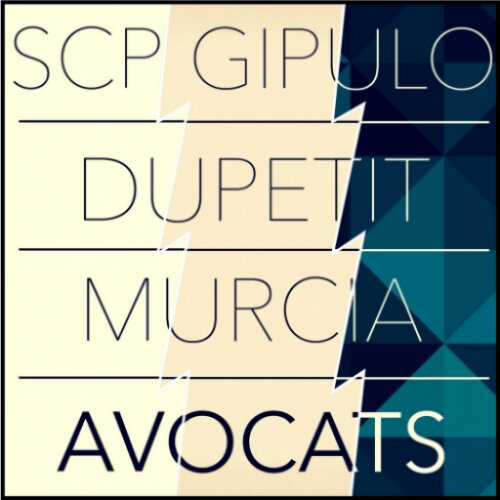Best Collaborative Law Lawyers in France
Share your needs with us, get contacted by law firms.
Free. Takes 2 min.
Free Guide to Hiring a Family Lawyer
Or refine your search by selecting a city:
List of the best lawyers in France
About Collaborative Law in France
Collaborative Law in France is an alternative dispute resolution process aimed at resolving legal issues without going to court. This process emphasizes cooperation and communication between parties, facilitated by specially trained lawyers. It originated in the United States in the 1990s and has since been adopted in various countries, including France, as a way to efficiently handle family law disputes, business conflicts, and other civil matters. The collaborative approach focuses on understanding mutual interests, fostering respect, and maintaining relationships while finding practical solutions.
Why You May Need a Lawyer
There are several situations where you might consider seeking legal help through Collaborative Law in France. These may include:
- Divorce or separation, where both parties wish to settle issues amicably, such as division of assets, child custody, or support arrangements.
- Business disputes, where preserving professional relationships and ensuring confidentiality are critical.
- Neighbor disputes, where a mutual agreement is preferred to maintain harmony.
- Family inheritance or estate planning issues, where collaboration can prevent long-term familial rifts.
- Any civil matter where direct negotiation might benefit from structured guidance and legal expertise.
Local Laws Overview
Collaborative Law in France is governed by principles designed to promote voluntary cooperation and problem-solving. Key aspects to consider include:
- All parties and their lawyers sign a participation agreement that commits them to the collaborative process and disqualifies the lawyers from representing them in court if the process breaks down.
- Confidentiality is assured throughout the process, creating a safe environment for open discussion.
- The process is entirely voluntary, and either party can opt out at any stage, although this typically results in starting over with different legal representation.
- Emphasis is placed on creative problem-solving, often involving experts like financial advisors or mental health professionals when necessary.
- French law recognizes the decisions made under the collaborative process, with formal agreements enforceable if compliant with legal standards.
Frequently Asked Questions
What is Collaborative Law?
Collaborative Law is a legal process that involves cooperation between parties to resolve disputes amicably without court intervention.
How does Collaborative Law differ from traditional litigation?
Unlike litigation, Collaborative Law focuses on negotiation and mutually beneficial outcomes, without the adversarial environment typical of courtroom settings.
Who can use Collaborative Law?
Any individuals or parties involved in disputes such as family, business, neighborly, or civil matters can choose Collaborative Law as an approach to resolution.
What is a participation agreement?
A participation agreement is a contract signed by both parties and their lawyers, committing them to the collaborative process and preventing court disputes.
Is Collaborative Law suitable for all legal disputes?
It is best suited for disputes where relationships need to be preserved and both parties are willing to cooperate. It's not recommended for highly contentious disputes.
Do I need a lawyer trained in Collaborative Law?
Yes, it is essential to have a lawyer trained in Collaborative Law as they guide the process and ensure all agreements comply with legal norms.
Can Collaborative Law be used in international disputes?
Yes, provided both parties are willing to participate and agree on the jurisdiction and applicable laws to resolve their issues collaboratively.
What happens if the collaborative process fails?
If the process breaks down, the involved lawyers cannot represent the parties in subsequent litigation, and new legal representation is required.
How long does the collaborative process take?
The duration varies depending on the complexity of the issues, but it is typically faster than going through court proceedings.
Are the agreements reached in Collaborative Law binding?
Yes, provided they meet legal standards. Agreements can be formalized in court if necessary to ensure enforceability.
Additional Resources
For those interested in learning more or needing support, consider the following resources:
- The French National Chamber of Specialized Lawyers in Collaborative Law offers information on approved collaborative lawyers.
- The Ministry of Justice in France provides resources and guidelines related to alternative dispute resolution mechanisms.
- Local bar associations often have directories of lawyers trained in Collaborative Law.
- Organizations focused on family law can provide additional support and guidance for relevant disputes.
Next Steps
If you believe Collaborative Law may be the right approach for your situation, consider the following steps:
- Research and contact lawyers who specialize in Collaborative Law.
- Schedule consultations to discuss your case and assess the lawyer's suitability and experience.
- Discuss the possibility of engaging in the collaborative process with the other party involved in the dispute.
- Once all parties are in agreement, sign the participation agreement to begin the collaborative process.
- Work closely with your lawyer and other professionals involved to negotiate and reach a mutually beneficial resolution.
Taking these steps can help you resolve your legal issues efficiently while preserving important relationships.
Lawzana helps you find the best lawyers and law firms in France through a curated and pre-screened list of qualified legal professionals. Our platform offers rankings and detailed profiles of attorneys and law firms, allowing you to compare based on practice areas, including Collaborative Law, experience, and client feedback.
Each profile includes a description of the firm's areas of practice, client reviews, team members and partners, year of establishment, spoken languages, office locations, contact information, social media presence, and any published articles or resources. Most firms on our platform speak English and are experienced in both local and international legal matters.
Get a quote from top-rated law firms in France — quickly, securely, and without unnecessary hassle.
Disclaimer:
The information provided on this page is for general informational purposes only and does not constitute legal advice. While we strive to ensure the accuracy and relevance of the content, legal information may change over time, and interpretations of the law can vary. You should always consult with a qualified legal professional for advice specific to your situation.
We disclaim all liability for actions taken or not taken based on the content of this page. If you believe any information is incorrect or outdated, please contact us, and we will review and update it where appropriate.
Browse collaborative law law firms by city in France
Refine your search by selecting a city.















